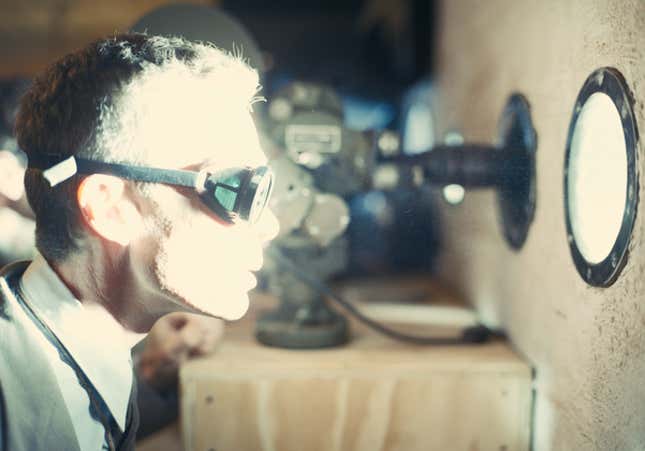
The dangers of weaponized AI are now being increasingly amplified in Hollywood films—explicitly, as in the case of Mission: Impossible, Dead Reckoning Part One, or implicitly, as in the latest case of Oppenheimer, the upcoming blockbuster directed by Christopher Nolan.
Based on a bestselling biography by Kai Bird and Martin J. Sherwin, Nolan’s film tells the story of J. Robert Oppenheimer, the American physicist famed for his role in the Manhattan Project, which created the atomic bombs that killed as many as 200,000 people in the Japanese cities of Hiroshima and Nagasaki in August 1945. Oppenheimer later regretted playing a pivotal part in assembling the bombs, and started working to stop nuclear proliferation.
During a July 17 panel in New York, alongside members of the cast and Bird, Nolan urged companies to adopt the “concept of accountability” for the technologies they create. He expressed concern about Silicon Valley innovators who “don’t want to take responsibility” for what their algorithms can do. “And applied to AI? That’s a terrifying possibility. Terrifying,” Nolan remarked. “Not least because as AI systems go into the defense infrastructure, ultimately they’ll be charged with nuclear weapons.”
Nolan said he’d talked to tech experts who were petrified by the possibility of AI getting out of hand. “They see what they’re doing as their ‘Oppenheimer moment,’ and they look to [Oppenheimer’s] story to give some kind of guidance as to how the relationship between science, technology, government and society should function.”
AI’s ‘Oppenheimer moment’ is here
Ever since Nolan began popularizing his film last year, several tech experts have resorted to the phrase “Oppenheimer moment” in relation to AI. Yuval Noah Harari, the historian and bestselling author of Sapiens, used the phrase last month to warn of an age in which an alien intelligence will rise and become more powerful and dangerous than humans. On July 6, Harari called for the imprisonment of the creators of AI robots that can masquerade as humans. If this is allowed to happen, Harari cautioned during the UN’s AI for Good global summit in Geneva, it will “do to society what fake money threatened to do to the financial system.”
The phrase “Oppenheimer moment” was first applied to AI by Alan Cooper, an American software engineer, during a February 2018 keynote speech in Australia. Cooper, in fact, titled his speech “The Oppenheimer Moment,” describing it as “that moment when you realize that your best intentions were subverted. When your product was used in unexpected and unwanted ways. It’s that moment when you realize that even though you aren’t racist, your algorithms might be.” If AI isn’t regulated well in time, scientists may only be able to regret the haste of their developments when it’s too late—just as Oppenheimer did three-quarters of a century ago.